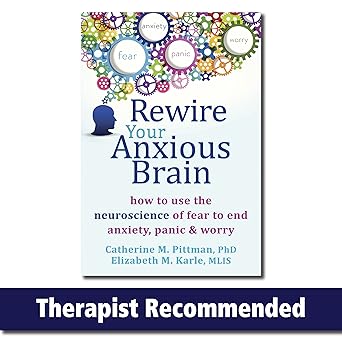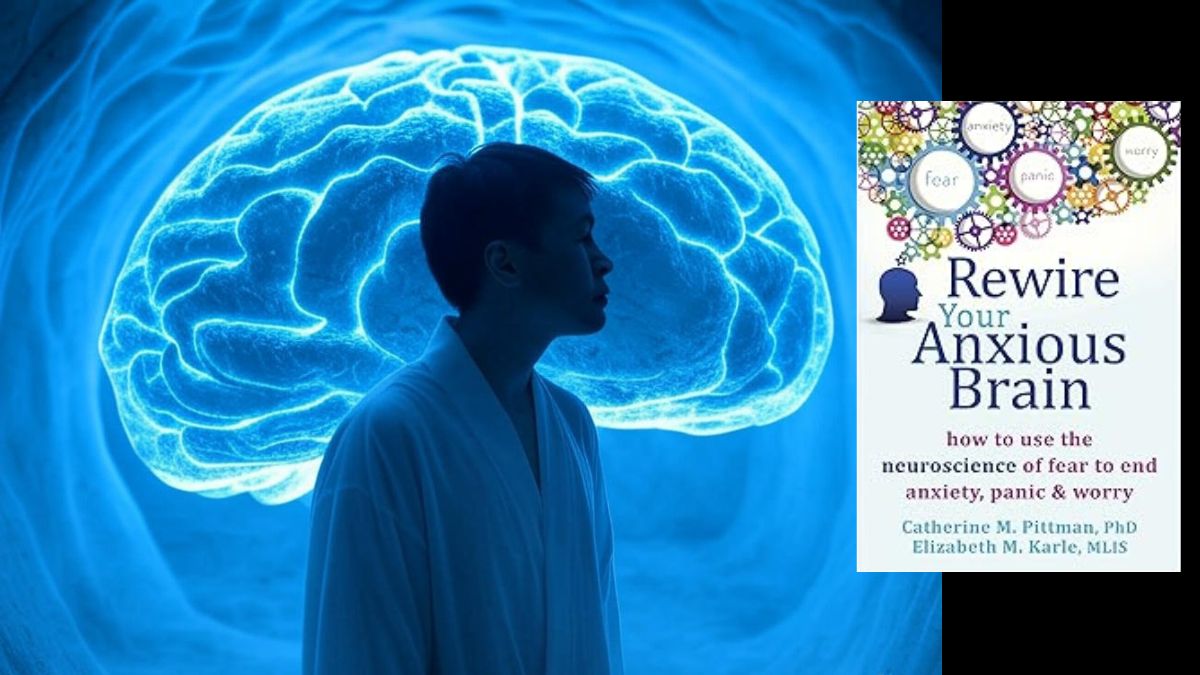Master Your Mind by Understanding It from the Inside Out
Rewire Your Anxious Brain by Catherine M. Pittman and Elizabeth M. Karle (often mistakenly attributed to Nick Trenton) is a game-changing guide for anyone caught in the loop of anxiety, panic, and overthinking. What sets this book apart from other self-help reads is how it blends neuroscience with practical techniques. It doesn’t just tell you to “relax” — it explains why you feel the way you do, and exactly how to change your brain’s response to stress and fear.
A Brain-Based Approach to Anxiety
The premise of this book is simple but powerful: anxiety stems from two primary brain structures — the amygdala and the cortex. The amygdala controls instinctive fear reactions (fight or flight), while the cortex processes more complex, thought-driven worry. By separating these two sources, the authors help readers pinpoint whether their anxiety is emotional (triggered subconsciously) or cognitive (triggered by thoughts).
This insight alone is incredibly empowering. Suddenly, you realize your brain isn’t broken — it’s just running on patterns that can be reshaped.
The book is structured in an easy-to-follow way. First, it explains the functions of the brain in plain English. Then it offers clear, actionable strategies to “rewire” those anxious responses. These include mindfulness practices, exposure therapy, journaling, breathing techniques, and cognitive behavioral tools.
What makes this book different is that it doesn’t rely on a one-size-fits-all method. It recognizes that different people experience anxiety differently, depending on how their brain is wired — and offers customized tools accordingly.

Why This Book Hits Different
In a world overloaded with advice on how to “think positive” or “calm down,” this book offers science-backed clarity. It removes the shame and mystery surrounding anxiety by showing readers what’s actually happening in their brain when anxiety strikes.
Rather than trying to shut down anxiety with sheer willpower, Rewire Your Anxious Brain encourages you to understand and train your brain — like building muscle at the gym. If you’re tired of temporary fixes and want lasting change, this book is for you.
Key Highlights:
- Understand how the amygdala and cortex play unique roles in anxiety.
- Learn the difference between fear-based and thought-based anxiety.
- Develop targeted tools to calm both brain systems.
- Includes real-life examples, exercises, and journaling prompts.
- Scientifically grounded, but conversational and easy to understand.
Book Details
- Publisher : New Harbinger Publications; 1st edition (January 2, 2015)
- Language : English
- Paperback : 232 pages
- ISBN-10 : 1626251134
- ISBN-13 : 978-1626251137
- Item Weight : 11.3 ounces
- Dimensions : 5.5 x 0.5 x 8.75 inches
- Best Sellers Rank: #3,382 in Books
FAQs about “Rewire Your Anxious Brain”
1. Is this book useful for panic attacks and general anxiety?
Yes. It covers both instinctive fear (amygdala-based) and overthinking (cortex-based) anxiety, offering tools for both.
2. Do I need a background in science to understand the book?
Not at all. The neuroscience is simplified with relatable metaphors and practical tips.
3. Can this book replace therapy?
While it’s an excellent supplement, it’s not a replacement. However, it can greatly enhance what you learn in therapy.
4. Does it offer exercises or just information?
It provides numerous exercises, reflections, and real-world strategies.
5. How long is the book?
It’s around 200 pages — a manageable read packed with insight and value.
About the Authors – Catherine M. Pittman & Elizabeth M. Karle
Dr. Catherine M. Pittman is a licensed clinical psychologist and an associate professor at Saint Mary’s College in Indiana. She specializes in cognitive-behavioral therapy (CBT) and has spent years researching the neuropsychology of anxiety. Co-author Elizabeth M. Karle is a mental health educator and writer passionate about translating complex science into everyday tools. Together, they blend clinical wisdom with cutting-edge neuroscience to create this transformative guide.

